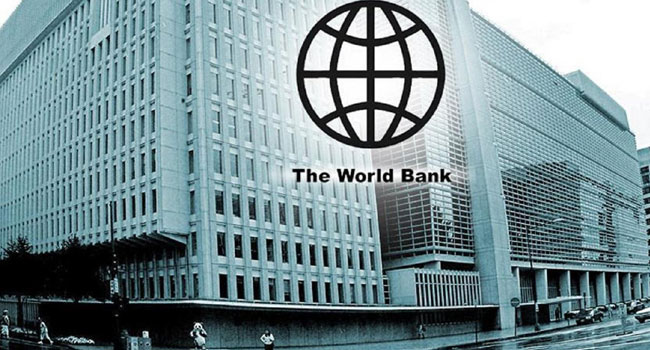The Federal Government has announced its intention to secure a $500 million loan from the World Bank to invest in rural road infrastructure and agricultural marketing.
Outlined in the final draft of the Resettlement Policy Framework for the Nigeria Rural Access and Agricultural Marketing Project Scale-UP, overseen by the Federal Ministry of Agriculture and Rural Development, the funding aims to improve connectivity in rural Nigeria. This initiative is crucial as currently, 92 million people in these areas lack access to adequate road networks.
The policy document noted: “Nigeria’s road network is relatively extensive, encompassing approximately 194,000 kilometres of roads. This includes 34,000 kilometres of federal roads, 30,000 kilometres of state roads, and 130,000 kilometres of registered rural roads. The road density equates to about 0.21 kilometres of roads per square kilometre.
“Despite this relatively high road density, the rural accessibility index for Nigeria (defined as the proportion of the rural population residing within 2 kilometres of an all-weather road) stands at a mere 25.5 per cent, resulting in approximately 92 million rural inhabitants lacking connectivity.
“Rural access is particularly restricted in areas densely populated by the economically disadvantaged. These factors underscore the imperative to expand and enhance the rural road network, as well as conserve rural road and transport assets.”
The RAAMP-SU project endeavors to enhance rural access and bolster climate resilience, thereby enhancing agricultural productivity and marketing opportunities for rural communities. This, in turn, is poised to enhance the livelihoods of the rural populace.
The project’s aims encompass enhancing rural access and climate resilience in targeted rural areas, enhancing institutional capacity for managing rural road networks, and reinforcing the financial and institutional frameworks for sustainable management of both rural and state road networks.
RAAMP-SU represents an extension of the prior Rural Access and Agricultural Marketing Project, which received support from the World Bank and the French Development Agency. It is spearheaded by the Federal Department of Rural Development within the Federal Ministry of Agriculture and Rural Development, with oversight provided by the Federal Project Management Unit.
The total estimated cost of the RAAMP-SU project stands at $600 million, with the World Bank slated to contribute 83.33 percent of the necessary funding.
This commitment figure represents a 79 percent increase over the initial World Bank commitment of $280 million for the parent project.
The project will allocate funding to three primary components: the Enhancement of Resilient Rural Access ($387 million), Climate-Resilient Asset Management ($158 million), and Institutional Strengthening and Project Management ($55 million).
As outlined in the policy document, states interested in participating in the project must have fully operational Roads Funds and Roads Agencies, complete with appointed boards and staff, along with provisions for administrative expenses in their state budgets.
The document added “While the eligibility for state participation under RAAMP required the drafting and placement of Road Fund and Roads Agency bills in the State house of assemblies, the new project would require the States to have a fully functional Roads Fund and Roads Agency with appointed boards and staff, and provision for administrative costs made in the state budget. In addition, RARAs offer an opportunity to foster women’s representation in the transport sector.
“The RAAMP-SU’s funds will be allocated on a competitive basis between states factoring in a refined socioeconomic selection matrix to increase rural access to basic services and promote food security; activities readiness in terms of design; and state’s demonstrated commitment in the projected infrastructure efficient maintenance, including potential co-financing from their resources.”
The policy framework stipulates that the implementation of resettlement and compensation plans is a prerequisite for project activities that cause resettlement.


